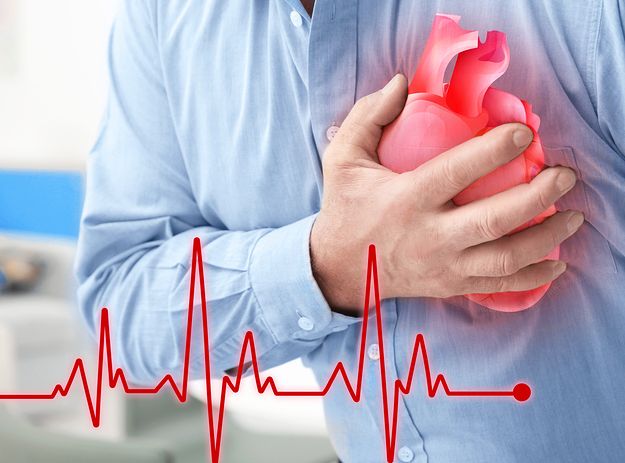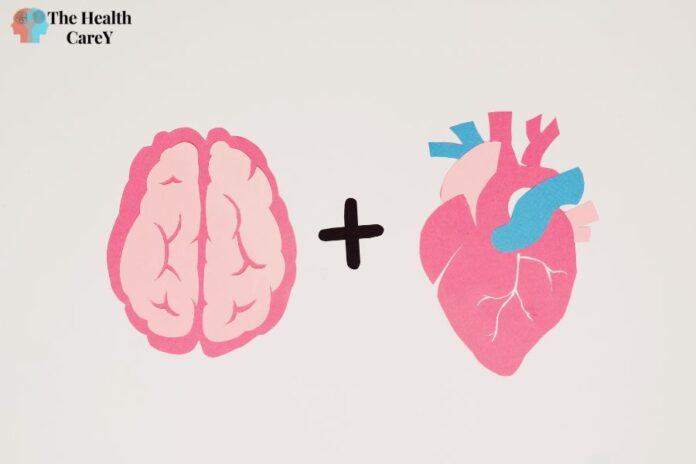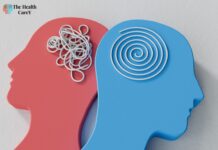If you’re experiencing both headaches and heart palpitations, what could be causing these symptoms? While they can occur separately, they can also occur together and may indicate an underlying medical condition. Understanding the possible causes of these symptoms can help you determine when to seek medical attention.
Heart palpitations are the sensation of your heart beating faster or harder than usual and can sometimes be felt in your chest or neck. Headaches can range from mild to severe and can be accompanied by various symptoms. When these two symptoms occur together, it could indicate an underlying condition such as dehydration, low blood pressure, or an arrhythmia. It’s essential to pay attention to any other symptoms you may be experiencing and to seek medical attention if you’re concerned.
There are several possible causes of headaches and heart palpitations, and it’s essential to identify the underlying cause to receive appropriate treatment. In this article, we’ll explore some common causes of these symptoms and what you can do to manage them. Whether you’re experiencing these symptoms for the first time or have been dealing with them for a while, understanding the potential causes and treatment options can help you take control of your health.
Understanding Headaches and Heart Palpitations
If you are experiencing both headaches and heart palpitations, it can cause concern. Headaches are a common symptom that various factors, including stress, tension, and dehydration, can cause. On the other hand, heart palpitations are a symptom of an irregular heartbeat, which a range of factors, including anxiety, caffeine, and heart disease, can cause.
Headaches are pain or discomfort in the head, face, or neck. They can be mild or severe and last a few minutes to several days. Headaches can also accompany other symptoms, such as nausea, sensitivity to light and sound, and fatigue.
Heart palpitations are a sensation of your heart racing, pounding, fluttering, or skipping a beat. Various factors, including stress, anxiety, caffeine, and heart disease, can cause them. Sometimes, heart palpitations can indicate a more severe condition, such as an arrhythmia or heart failure.
If you are experiencing headaches and heart palpitations, you must speak with your healthcare provider to determine the underlying cause. They may recommend further testing, such as an electrocardiogram (ECG) or a blood pressure test, to determine if there is an underlying heart condition.
Sometimes, lifestyle changes help alleviate headaches and heart palpitations. For example, reducing your caffeine intake, managing stress levels, and staying hydrated can all help improve symptoms. Medication or other treatments may be necessary in more severe cases to manage symptoms and prevent complications.
If you are experiencing headaches and heart palpitations, it is essential to seek medical attention to determine the underlying cause and develop an appropriate treatment plan.

Causes of Headaches and Heart Palpitations
Experiencing headaches and heart palpitations can be concerning, but there are several potential causes. Here are some of the most common reasons:
- Stress: High levels of stress can cause both headaches and heart palpitations. When stressed, your body releases hormones that can cause your heart to beat faster and your blood vessels to constrict, leading to both symptoms.
- Exercise: Intense exercise can cause headaches and heart palpitations in some people. This is because exercise increases your heart rate and blood pressure, which can trigger these symptoms.
- Fever and Fatigue: Both fever and fatigue can cause headaches and heart palpitations. This is because these conditions can cause your body to become dehydrated, leading to changes in your blood pressure and heart rate.
- Alcohol and Caffeine: Both alcohol and caffeine can cause headaches and heart palpitations. Alcohol can cause dehydration, which can trigger these symptoms. Caffeine can cause your heart to beat faster and your blood vessels to constrict, leading to both signs.
- Panic Attack: Panic attacks can cause both headaches and heart palpitations. During a panic attack, your body releases stress hormones that can cause your heart to beat faster and your blood vessels to constrict, leading to both symptoms.
- Diet: Your diet can also play a role in causing headaches and heart palpitations. Consuming too much sugar or processed foods can cause blood sugar spikes and crashes, leading to both symptoms.
- Anxiety: Anxiety can cause both headaches and heart palpitations. When you’re anxious, your body releases stress hormones that can cause your heart to beat faster and your blood vessels to constrict, leading to both symptoms.
- Smoking: Smoking can cause headaches and heart palpitations. Nicotine can cause your heart to beat faster and your blood vessels to constrict, leading to both symptoms.
- Infection and Virus: Infections, including COVID-19, can cause headaches and heart palpitations. These conditions can cause inflammation, leading to blood pressure and heart rate changes.
- Cancer and Blood Clots: In rare cases, headaches and heart palpitations can be signs of more severe conditions, such as cancer or blood clots. If you’re experiencing these symptoms frequently or severely, consult your doctor to rule out any underlying health issues.
Overall, there are many potential causes for headaches and heart palpitations, ranging from lifestyle factors to serious health issues. If you’re experiencing these symptoms frequently or severely, you must consult your doctor to determine the underlying cause and receive appropriate treatment.
Medical Conditions Related to Symptoms
If you are experiencing headaches and heart palpitations, it could be a sign of an underlying medical condition. Here are some of the conditions that are related to these symptoms:
- Arrhythmia: This condition refers to an abnormal heartbeat. It can cause your heart to beat too fast, slow, or irregularly. Some types of arrhythmias can cause heart palpitations.
- Heart disease: Heart disease can cause various symptoms, including chest pain, shortness of breath, and heart palpitations. You must talk to your doctor if you have a family history of heart disease or other risk factors.
- Tachycardia: Tachycardia is a condition where your heart beats too fast. It can cause heart palpitations, dizziness, and shortness of breath.
- Stroke: A stroke occurs when blood flow to the brain is interrupted. It can cause various symptoms, including headache, dizziness, and heart palpitations.
- Heart failure: Heart failure occurs when your heart cannot pump blood effectively. It can cause shortness of breath, fatigue, and heart palpitations.
- Atrial fibrillation: Atrial fibrillation is a type of arrhythmia where the heart’s upper chambers beat irregularly. It can cause heart palpitations, fatigue, and shortness of breath.
- Migraine: Migraines are a type of headache that can cause various symptoms, including nausea, sensitivity to light and sound, and dizziness.
- High blood pressure: High blood pressure can cause headaches, dizziness, and heart palpitations. Monitoring your blood pressure regularly and talking to your doctor if it is consistently high is essential.
- Anemia: Anemia is a condition where you have a low red blood cell count. It can cause fatigue, shortness of breath, and heart palpitations.
- Hyperthyroidism: Hyperthyroidism is when your thyroid gland produces too much thyroid hormone. It can cause various symptoms, including anxiety, weight loss, and heart palpitations.
- Depression: Depression can cause various physical symptoms, including headaches, fatigue, and heart palpitations. If you are experiencing symptoms of depression, it is essential to talk to your doctor or a mental health professional.
If you are experiencing headaches and heart palpitations, you must talk to your doctor to determine the underlying cause. Your doctor may recommend additional tests or refer you to a specialist for further evaluation and treatment.
Symptoms and Indicators of Headache and Heart Palpitations
You may also notice other symptoms and indicators if you are experiencing heart palpitations and headaches. These can include:
- Chest pain or discomfort
- Dizziness or lightheadedness
- Fainting or feeling faint
- Nausea or vomiting
- Sweating
- Tremors
- Difficulty concentrating
- Confusion
- Weakness
- Dehydration
When experiencing heart palpitations, you may feel like your heart is racing, pounding, flip-flopping, or fluttering. You may also feel like your heart is missing heartbeats. These sensations can be felt in your chest, throat, or neck.
Headaches can present as a dull ache, sharp pain, or throbbing sensation in your head. You may also experience sensitivity to light or sound, nausea, and vomiting.
If you experience heart palpitations and headaches accompanied by passing out, shortness of breath, chest pain, or confusion, seek immediate medical attention, as these may be signs of a medical emergency.
Monitoring your symptoms and seeking medical attention if they persist or worsen is essential. Your healthcare provider can help determine the underlying cause of your symptoms and provide appropriate treatment.

Headache and Heart Palpitations Diagnosis and Medical Treatment
If you are experiencing headaches and heart palpitations, it is essential to seek medical attention. Your healthcare provider will perform a thorough physical examination and may order diagnostic tests to determine the underlying cause of your symptoms.
Diagnostic tests, including electrocardiogram (ECG), blood tests, echocardiogram, and stress tests, may be ordered. These tests can help your healthcare provider diagnose any underlying heart conditions that may be causing your symptoms.
Suppose your healthcare provider determines that your symptoms are unrelated to a heart condition. In that case, they may refer you to a neurologist or other specialist to determine any neurological causes for your symptoms.
Medical treatment for headaches and heart palpitations will depend on the underlying cause of your symptoms. If you have an underlying heart condition, your healthcare provider may prescribe medications to help manage your symptoms. Some medicines that may be prescribed include beta-blockers, calcium channel blockers, and anti-arrhythmic drugs.
If your symptoms are related to a neurological condition, your healthcare provider may prescribe medications to help manage your symptoms. Some medicines that may be prescribed include beta-blockers, anti-seizure medications, and antidepressants.
Surgery or other procedures may sometimes be necessary to treat the underlying cause of your symptoms. For example, if you have a heart condition causing your symptoms, your healthcare provider may recommend surgery to repair or replace a damaged heart valve.
It is essential to follow your healthcare provider’s instruction medical treatment instructions and follow-up appointments. You must notify your healthcare provider immediately if you experience any new or worsening symptoms.
Prevention and Management
Maintaining a healthy lifestyle is essential to prevent headaches and heart palpitations. Here are some tips to keep in mind:
- Get enough rest: Lack of sleep can trigger headaches and palpitations. Try to get at least 7-8 hours of sleep per night.
- Stay hydrated: Dehydration can also cause headaches and palpitations. Drink plenty of water throughout the day.
- Manage stress: Stress can be a significant trigger for headaches and palpitations. Find ways to manage your stress levels, such as meditation or yoga.
- Regular exercise can help prevent headaches and palpitations by reducing stress and improving blood flow.
If you do experience headaches or palpitations, there are several ways to manage them:
- Take a break: If you are experiencing symptoms, rest from whatever you are doing.
- Take medication: Over-the-counter pain relievers such as ibuprofen or acetaminophen can help relieve headaches. If you have heart palpitations, your doctor may prescribe medication to help manage them.
- Avoid triggers: Keep track of what triggers your symptoms and try to avoid them. Common triggers include stress, certain foods or drinks, and lack of sleep.
- Seek medical attention: If your symptoms persist or worsen, seek medical attention. Your doctor can help determine the underlying cause of your symptoms and provide appropriate treatment.
Following these tips and taking steps to manage your symptoms can prevent headaches and heart palpitations from interfering with your daily life.
Risks and Complications
Experiencing heart palpitations and headaches together can be an unsettling experience. Most of the time, these symptoms are not a cause for concern, but there are some risks and complications you should be aware of.
One of the most significant risks associated with heart palpitations is the potential for developing an irregular heart rhythm. This can lead to supraventricular tachycardia (SVT), which causes the heart to beat too quickly. SVT can be a serious health problem if left untreated, so you must seek medical attention if you frequently experience heart palpitations.
Another risk associated with heart palpitations is fainting. If your heart rate becomes too high or too low, it can cause you to lose consciousness. This can be dangerous, especially if you are driving or operating heavy machinery at the time.
In rare cases, heart palpitations can signify a more serious health condition, such as a heart attack. If you experience chest pain, shortness of breath, lightheadedness, and heart palpitations, seek medical attention immediately.
It’s also important to note that lifestyle factors can contribute to heart palpitations and headaches. For example, consuming too much caffeine or alcohol can cause your heart rate to increase, leading to palpitations. Stress can also be a trigger for heart palpitations and headaches.
In summary, while heart palpitations and headaches are usually harmless, there are some risks and complications to be aware of. If you experience these symptoms frequently or with other health problems, seeking medical attention to rule out any underlying conditions is essential.
Impact of Lifestyle and Substance Use
Your lifestyle and substance use can significantly impact your risk of experiencing headaches and heart palpitations. Certain lifestyle factors may cause these symptoms, including stress, alcohol, caffeine, tobacco use, exposure to smoke, and some medications.
Alcohol consumption can lead to alcohol-induced cardiomyopathy, a condition where too much alcohol damages your heart. This damage happens because parts of your heart stretch and enlarge, weakening your heart muscle and keeping it from pumping as well as it should. This can lead to heart palpitations and headaches.
Caffeine is a stimulant that can cause heart palpitations and headaches. In some people, caffeine can trigger heart palpitations by increasing the heart rate. Caffeine can also cause headaches by constricting blood vessels in the brain.
Your diet can also play a role in developing headaches and heart palpitations. Eating foods that are high in sugar or salt can cause dehydration, which can lead to headaches. Skipping meals or not eating enough can also cause headaches.
Smoking and exposure to smoke can cause heart palpitations and headaches. Nicotine is a stimulant that can increase the heart rate and cause vibrations. Smoking can also cause headaches by reducing the amount of oxygen that reaches the brain.
Stimulants like cocaine and other illegal drugs can cause heart palpitations and headaches. These drugs can increase the heart rate and cause vibrations. They can also cause headaches by constricting blood vessels in the brain.
Hormone changes associated with pregnancy can cause heart palpitations and headaches. The hormone increase during pregnancy can cause the heart to beat faster, leading to palpitations. Hormone changes can also cause headaches.
Overall, being aware of how your lifestyle and substance use can impact your risk of experiencing headaches and heart palpitations is crucial. Making healthy choices, such as reducing alcohol and caffeine consumption, quitting smoking, and maintaining a balanced diet, can help reduce your risk of developing these symptoms.
Privacy and Communication
When discussing your headache and heart palpitations with your healthcare provider, you want to protect your privacy. Here are some things to keep in mind:
Communication
Your healthcare provider should communicate with you clearly and respectfully. They should explain any medical terms or procedures in a way you can understand. If you have any questions or concerns, be sure to ask. It’s essential that you feel comfortable discussing your symptoms with your provider.
Email Communication
If you communicate with your healthcare provider via email, keep in mind that email is not a secure form of communication. Be cautious about sharing sensitive information over email. Administrative staff may also preview your email before it reaches your provider, so keep this in mind when composing your message.
Usage Information
Your healthcare provider may collect information about your website or patient portal usage. This information may include your IP address, browser type, and pages visited. This information is used to improve the website and provide better patient service.
Protected Health Information
Your healthcare provider is required by law to protect your health information. This includes any information related to your headache and heart palpitations. Your provider should have a Notice of Privacy Practices that explains how your health information will be used and shared. If you have any questions about how your data is being used, ask.
Opt-Out
You can opt-out to avoid receiving marketing materials from your healthcare provider. Your provider should provide a way to opt out of these communications.
Recent Research Advancements about Headache and Heart Palpitations
Recent research has shed light on the connection between headaches and heart palpitations, leading to new advancements in the field. Here are some of the latest research findings:
- Migraine: Studies have shown that sufferers are more likely to experience heart palpitations than those without migraines. The exact reason for this link is still unclear, but researchers believe it may be due to changes in the nervous system that affect both the heart and the brain.
- High blood pressure: High blood pressure has long been associated with an increased risk of heart disease, but recent studies have also linked it to headaches and migraines. This may be because high blood pressure can cause changes in blood flow to the brain, triggering headaches.
- Anemia: Anemia, a condition in which the body doesn’t have enough red blood cells, can cause fatigue, weakness, and headaches. It can also lead to heart palpitations and other heart problems in severe cases.
- Hyperthyroidism: Hyperthyroidism, a condition in which the thyroid gland produces too much thyroid hormone, can cause various symptoms, including headaches and heart palpitations. This is because the thyroid hormone affects the body’s metabolism, which can, in turn, affect the heart and the brain.
- Depression: Depression is a common mental health condition that can cause various physical symptoms, including headaches and heart palpitations. Recent research has shown that treating depression can help alleviate these symptoms.
- COVID-19: COVID-19, the respiratory illness caused by the coronavirus, has been linked to neurological symptoms, including headaches and heart palpitations. It is still unclear exactly how the virus causes these symptoms, but researchers believe it may be due to inflammation in the body.
- Cancer: Cancer treatments, such as chemotherapy and radiation therapy, can cause various side effects, including headaches and heart palpitations. Cancer patients must discuss these symptoms with their healthcare provider to ensure they are appropriately managed.
- Inflammation: Inflammation in the body has been linked to various health problems, including heart disease, headaches, and other neurological symptoms. Recent research has focused on the role of inflammation in these conditions and how it can be treated to alleviate symptoms.
- Heart muscle: Recent research has shown that changes in the heart muscle may contribute to heart palpitations and other heart problems. This has led to new treatments and therapies that target the heart muscle to alleviate these symptoms.
Recent research has provided new insights into the connection between headaches and heart palpitations and has led to new treatments and therapies for these conditions. If you experience these symptoms, discussing them with your healthcare provider to determine the underlying cause and the best course of treatment is essential.
Frequently Asked Questions
What are the common causes of heart palpitations and headaches?
Various factors, including stress, anxiety, caffeine, alcohol, tobacco use, and exposure to smoke, can cause heart palpitations and headaches. Certain medications, such as decongestants and asthma inhalers, can cause heart palpitations and headaches.
What are some symptoms of cardiac headaches?
Cardiac headaches are a type of headache that heart problems can cause. Symptoms of cardiac headaches include a throbbing pain typically felt on one side of the head, nausea, vomiting, and sensitivity to light and sound.
Can heart palpitations cause headaches and fatigue?
Yes, heart palpitations can cause headaches and fatigue. When the heart beats irregularly or too fast, it can cause a decrease in blood flow to the brain, leading to headaches and fatigue.
What should I do if I experience heart palpitations and headaches?
If you experience heart palpitations and headaches, speaking with your healthcare provider is essential. They can help determine the underlying cause of your symptoms and recommend appropriate treatment.
When is it necessary to seek medical attention for heart palpitations?
You should seek medical attention for heart palpitations if they are accompanied by chest pain, shortness of breath, dizziness, or fainting. Additionally, if you have a history of heart problems or if your vibrations are frequent or severe, it is essential to speak with your healthcare provider.
Are there any lifestyle changes that can help reduce Headache and Heart Palpitations?
Yes, several lifestyle changes can help reduce Headache and Heart Palpitations. These include reducing stress, avoiding caffeine and alcohol, quitting smoking, and exercising regularly. Maintaining a healthy diet and getting enough sleep can also help reduce symptoms.
Also Read:
How Much to Walk if Your BMI is Normal





















